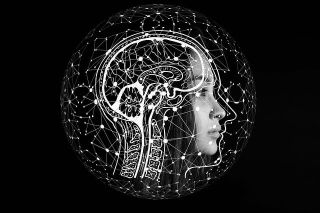KEY POINTS-
- Just as cortisol is needed for optimal bodily function, the brain needs it too.
- The morning increase in cortisol provides mental energy.
- Long-term cortisol elevation can be counterproductive, however.

In my last post, I discussed how cortisol is good for your body. It gets energy where it’s needed and helps to keep us from getting sick. This time, I want to talk about how cortisol is good for the brain.
Just as energy, in the form of glucose, is necessary for the functioning of our bodies, it is also necessary for the many functions of our brains. (The brain is a part of our body, after all). Glucose is the fuel for all that the brain does. Need to get to work early to finish a project? You’re going to need to get fuel to your brain to do that, and cortisol plays a significant role in that process.
Cortisol levels vary throughout the day, reaching the lowest levels overnight and the peak about an hour after waking up in the morning. This waking cortisol response provides the energy necessary to respond to the challenges of the day, both physical and mental.
An example of the benefit of cortisol on mental resources comes from a remarkable study done on one man. For 50 days, this researcher-participant documented both his cortisol response to awakening as well as his performance on a task requiring mental effort. The task is one that you may have completed for course credit in a Psych 101 class: An arrow appears on either the right or the left side of a computer screen, and it is pointing either to the left or the right. During some of the trials, you must respond to whether the arrow is on the left or right side of the screen. During other trials, you respond to which direction the arrow is pointing, regardless of which side of the screen it’s on. Cognitive psychologists describe this mental ability to switch back and forth as executive functioning.
What’s cortisol got to do with it?
On days when this gentleman’s cortisol awakening response was higher, he had better performance on this task than on days when the cortisol response was lower. Because this study was repeated so many times within one person, the researchers could control for a host of factors, such as practice effects, fatigue, and sleep quality, that may influence performance. None of these factors were related to performance, but cortisol was.
The skeptics among you are probably asking: Why make a big deal of a study on one man? Good point. These same authors did a follow-up study assessing the connection between the cortisol awakening response and mental function in 55 adults. Results showed the same pattern: People who had a higher cortisol awakening response showed better mental performance later in the day.
Why would a hormone floating around in our brain be related to better mental performance? The brain runs on glucose, and cortisol’s main action is to increase the availability of glucose to working cells in our brains. The cortisol awakening response sets the stage for improved mental function by making more glucose available to working neurons.
If cortisol is so good for mental performance, then why can’t I find my keys when I’m stressed out? Just as a quick jolt of cortisol can help ward off infection, it can be useful to improve mental function in the short term. And just as chronic exposure to cortisol can lead to poor health, it can also impair mental performance in the long term.
The effects of cortisol on our brain’s mental functions are similar to its effects on physical health. Too much is bad for you. Too little is bad for you. It’s the “Goldilocks Zone” of cortisol levels that you want to shoot for. Good luck keeping it in the zone.


